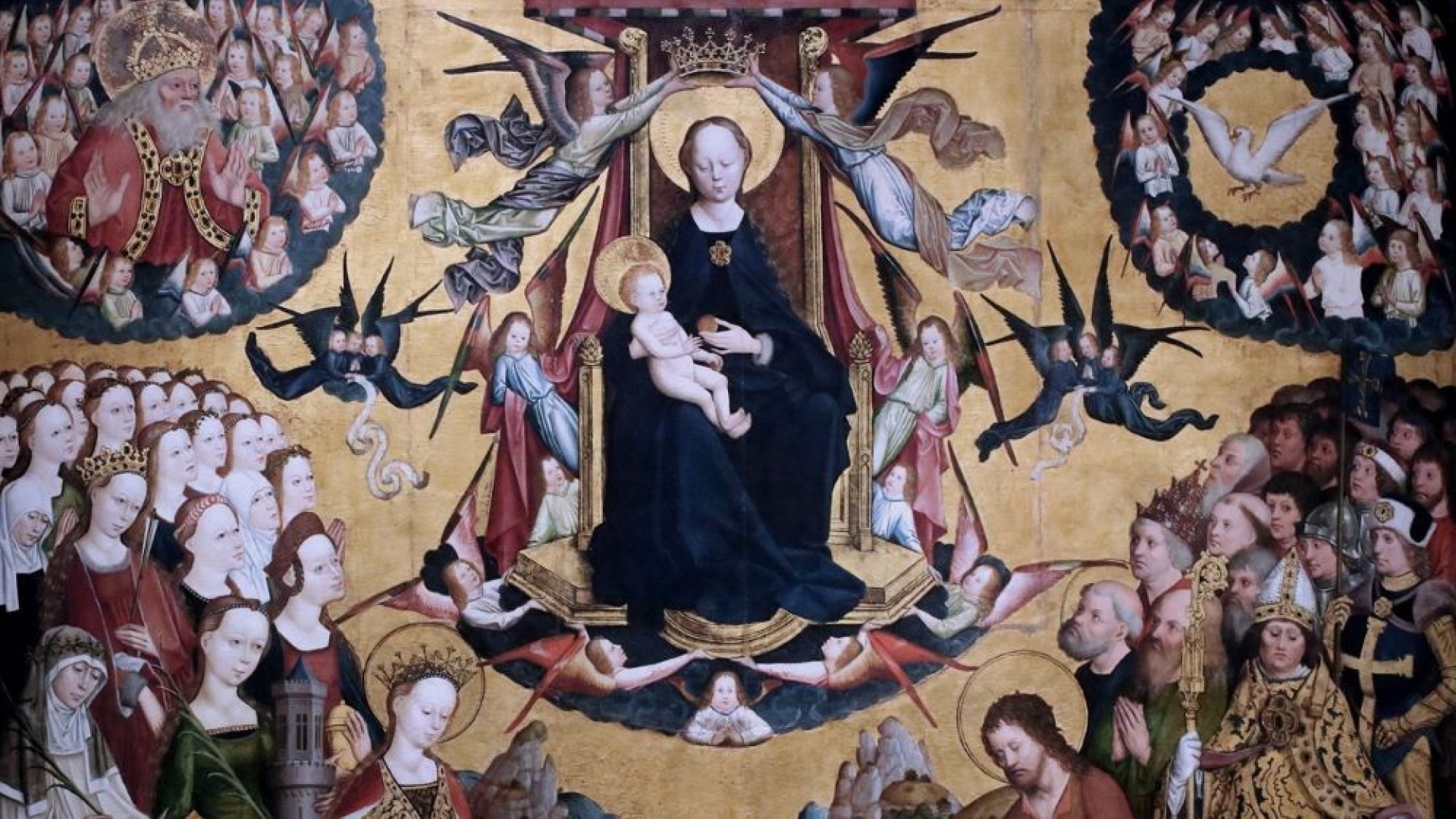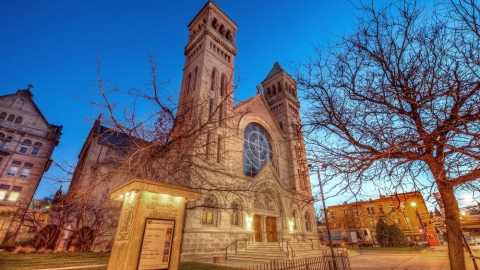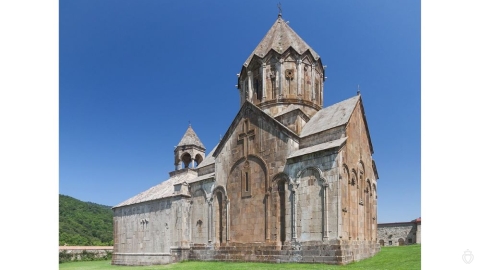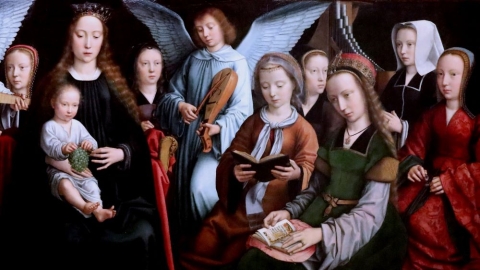The Predestination of the Virgin Mary

The divine maternity is not a temporary function. When the Church triumphant will remain alone at the end of the world, the functions will cease: the entire Catholic hierarchy, pope, cardinals, bishops, will no longer have authority. No more sacraments will be given, because the saints in heaven will possess the reality of which they are the sign. But the relationship between Mary and Jesus will remain perfectly.
Every being keeps in himself the reality of his origin. Children are always the descendants of those who have given them life, whatever the condition of these parents. Jesus remains forever aware of being born of the Virgin and of having been formed by her.
Nevertheless, the relationship of Jesus to Mary is not only that of a child to the one from whom he has received life. It is God Himself who received this human being from her.
Everything that happened in the humanity of Christ is a permanent mystery, and nothing, neither of His earthly life, nor of His human origin, ceases to live and act in Christ glorified: the entire mystery of Christ is ceaselessly present in Him.
In this way, in the Mass, we especially adore Christ in His Passion and in His death, but all the mysteries from His Incarnation up to His Ascension are yet present.
But the divine maternity is a personal link between the Virgin and the Incarnate Word that is more complete than the original link: it is based on the Incarnation and lasts just as long, that is, eternally. Mary remains united to all the life, to all the destiny of the Incarnate Word.
This is why her maternity marks her forever, in all her being, in all her person, as consecrated to Jesus, as a total and always present sharing. She remains as an always given grace.
Consequence of the Virgin’s predestination
It follows that before being the mother of Christ, and from the first instant of her existence, Mary was created, chosen, loved already as a mother and for being a mother.
The idea of predestination adds to that of grace and divine action in the soul, the concept of an eternal and immutable election.
The Most Holy Virgin was predestined to be the mother of the Incarnate Word. All of her grace and even her glory are given to Him in order to be perfectly, to the point of fulfilling the mother as partner—associated with the work of her Son—in the most intimate and total union.
To express this total union, theology uses a specific expression: it speaks of a same “decree of the Incarnation” which predestines Mary to Jesus.
The term decree here refers to a divine “decision,” such as we can perceive it and express it in our poor human language, because this “decision” is eternal.
To explain a bit more, it should be added that angels and men are predestined in Jesus Christ. All the graces given here below and the glorious crowning of each of the saints in heaven are the effect of the grace of Jesus Christ and, consequently, of the Incarnation.
But, since Mary is the Mother of Christ, the Incarnate Word, her natural being itself is for the Incarnation. And the grace that is given to her is only for the role she must play in this sublime work of the Most Holy Trinity: the Incarnation of the Word, the Son of God.
This sublime and so profound conclusion must be reached: Mary’s predestination is thus not only the effect of the predestination of Jesus, she is part of it.
It is for Jesus that she is what she is, for the perfection of the Incarnation, for the accomplishment of the predestination of Jesus Himself: especially for the mystery of the Redemption.
Related links
Illustration : Flickr / Jean Louis Mazieres (CC BY-NC-SA 2.0)





